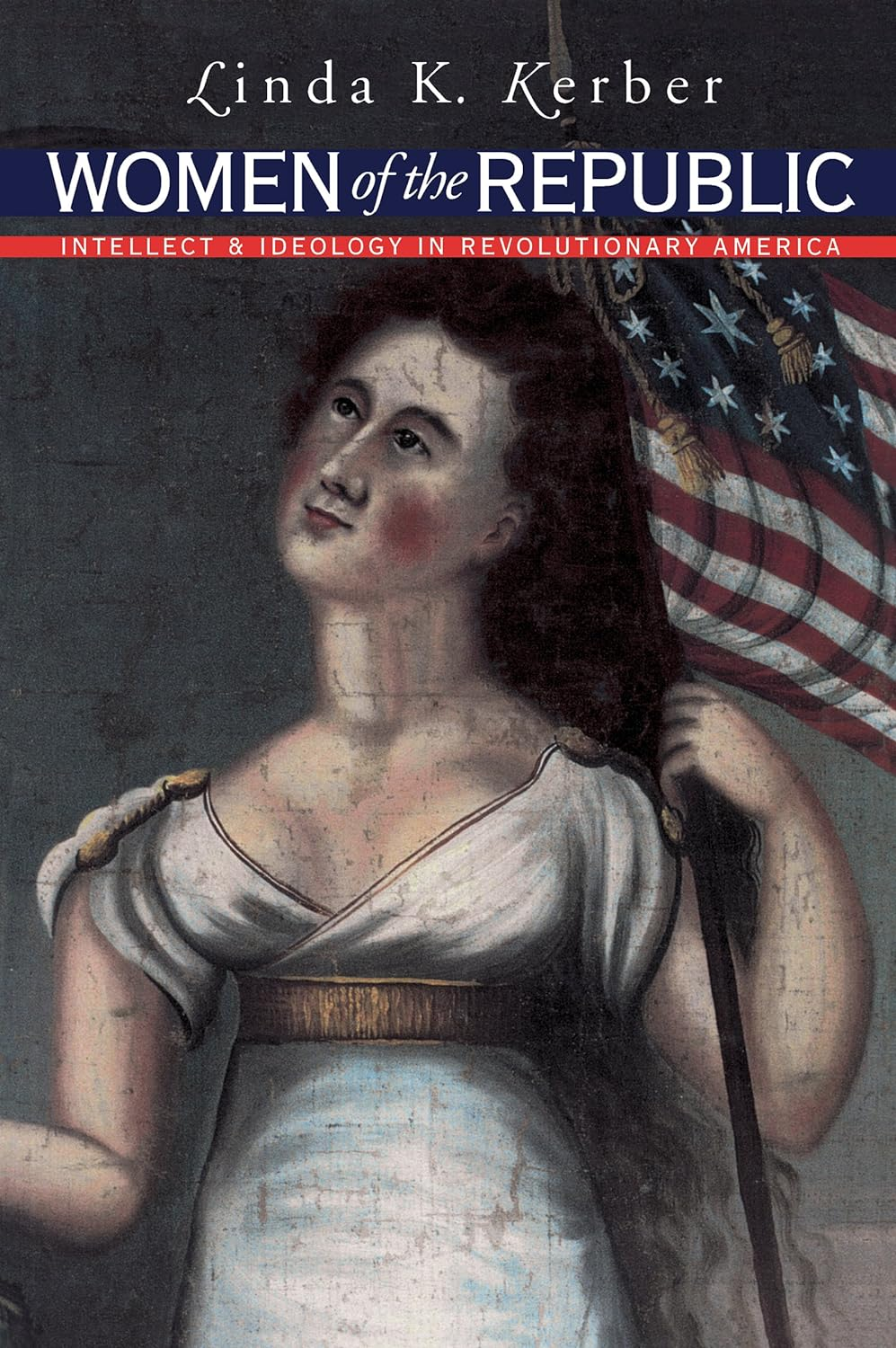Our interest in commemorating the 250th anniversary of American independence involves a significant look backwards at the American past—and at some of the classics that the OI has published on Revolutionary America. This month, we feature Linda Kerber’s Women of the Republic: Intellect and Ideology in Revolutionary America, which first appeared in 1980. One of a group of pathbreaking books researched in the 1970s and published in the early 1980s, Women of the Republic has introduced generations to the role of women in the American Revolution and the possibilities of women’s history.
Women of the Republic may be best known for laying out the concept of “Republican motherhood.” Can you explain what you mean by that term? What made someone in Revolutionary America a “Republican mother?”
In framing the new republic, white male leaders worried about sustaining the virtue on which they believed the revolution had depended. They lived in a political world in which women had no approved or obvious political roles – appointments or election to even minor government responsibilities. But men could assign to white women the responsibility for raising the next generation of virtuous republican citizens. It was a role some of them embraced. Some years later, Jan Lewis identified a major extension of this concept in the role of the “Republican wife” – women could sustain the republic by choosing only politically virtuous men for partners. This ideology was tightly linked to a demand for more education for women, which in turn sustained the invention and growth of female academies.
Through your research you reveal a complicated interaction between ideas about women’s role in political society (or lack thereof) and the ways in which women actually engaged in political activity on the ground during the Revolution. How did Americans at the time deal with the disjunctures that you identified?
To live with disjuncture is human – we live with contradictions every day. The Revolution was a civil war between Loyalists and Patriots as well as a colonial rebellion by settlers against the British Empire. It was often conducted as a guerilla war, in which armed civilians conducted ambushes and sabotage. In the turmoil of this war, women were civilians, vulnerable to and responsive to immediate challenge. Deborah Sampson Gannett served as a sniper while keeping her identity secret from her colleagues; women served as spies, as what we would call orderlies in hospitals. Their blankets and other household resources were seized by occupying troops on both sides.
